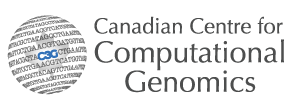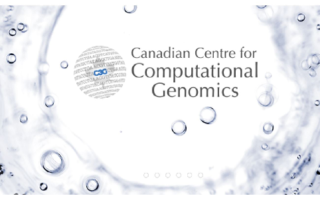Consultez notre blogue pour resté informé à propos de nos événements à venir ainsi qu’aux plus récents développements dans le domaine de la génomique. Veuillez noter que les blogues sont publiés ici dans leur langue d’origine seulement. New C3G Website By David Anderson Re-designing a website can be a complex task, especially an existing website. There are many factors to consider during the process. Such as the content, structure, navigation, functionality, images, and the goal and mission. In the article, I will explain the process behind [Read more] The SecureData4Health (SD4H) website is LIVE! SecureData4Health (SD4H) launched its new website. SecureData4Health (SD4H) is a secure cloud infrastructure aimed at providing high-throughput technologies for easy and secure genomic health data sharing and advanced analytics to maximize scientific discovery. Visit now: sd4health.ca Published: January 28, 2022 [Read more] Gene fusion meta-calling with MetaFusion The Toronto Node of C3G has developed MetaFusion, a flexible meta-calling tool that amalgamates outputs from any number of fusion callers. Designed to overcome inconsistencies among frequently used fusion callers, MetaFusion is among the first ensemble fusion calling tools currently available. Individual results from [Read more] Working with Genomics Coming From a Pure Software Engineering Background by Sebastian Ballesteros A little bit about my background While pursuing a Bachelor of Science in Software Engineering at McGill University, I joined the Canadian Centre for Computational Genomics as an intern in 2020. I started working at the [Read more] A small number of early introductions seeded widespread transmission of SARS-CoV-2 in Quebec, Canada In April 2020, the Coronavirus Sequencing in Québec (CoVSeQ) consortium was assembled to sequence SARS-CoV-2 genomes in Québec to track viral introduction events and transmission within the province. Jose Hector Galvez, Pierre-Olivier Quirion, Paul Stretenowich, [Read more] Adapting to remote and electronic means of patient care Electronic and remote means of healthcare have become a staple over the past year, and the Toronto Node of C3G has been involved in several efforts to facilitate and improve remote patient care. In a joint effort with Smart Cancer [Read more] Platforms to help identify asymptomatic carriers of COVID-19 Identifying asymptomatic carriers of the novel coronavirus is crucial in preventing the spread of COVID-19, particularly in healthcare settings. C3G’s Toronto Node has developed several applications for this purpose across various health institutions. The Mt. Sinai Hospital and Lunenfeld-Tanenbaum Research Institute’s [Read more] Understanding why persons living with HIV are at increased risk of tuberculosis Persons living with HIV (PLWH) are at increased risk of tuberculosis (TB). HIV-associated TB is often the result of a recent infection with Mycobacterium tuberculosis (Mtb) followed by rapid progression to the disease. Alveolar macrophages (AM) are [Read more] STOP-CoV: Examining COVID-19 vaccination responses across age groups As the rollout for COVID-19 vaccinations continues across Ontario the C3G Toronto Node has helped establishSTOP-CoV (SafeTy and Efficacy of Preventative COVID Vaccines), a province-wide study to examine the differences in COVID-19 vaccine responses between younger and older individuals. Participants contribute [Read more] Rare loss-of-function variants in type I IFN immunity genes are not associated with severe COVID-19 Host genetic factors related to COVID-19 susceptibility and outcomes are of great interest, as their identification could elucidate the mechanisms of SARS-CoV-2 infection and severity, thereby providing clues about potential therapeutic targets. A recent [Read more]Website re-design
The SecureData4Health (SD4H) website is LIVE
Gene fusion meta-calling with MetaFusion
Working with Genomics Coming From a Pure Software Engineering Background
A small number of early introductions seeded widespread transmission of SARS-CoV-2 in Quebec, Canada
Adapting to remote and electronic means of patient care
Platforms to help identify asymptomatic carriers of COVID-19
Understanding why persons living with HIV are at increased risk of tuberculosis
STOP-CoV: Examining COVID-19 vaccination responses across age groups
Rare loss-of-function variants in type I IFN immunity genes are not associated with severe COVID-19














